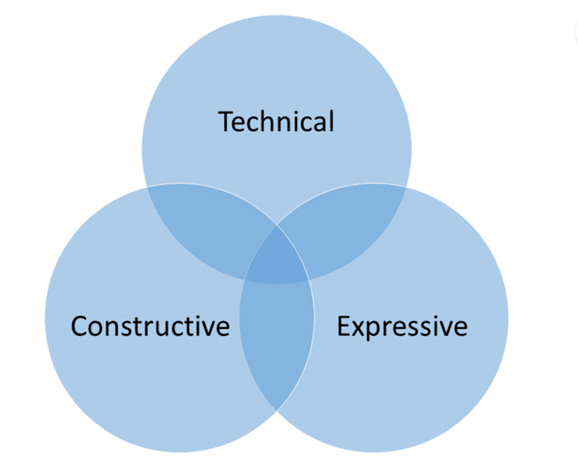Music
At Lord Street Primary School, we ensure that every child has a meaningful interaction with musical activities and that our music teaching not only engages pupils and creates an atmosphere in which all children feel able to participate but also inspires pupils to develop a love of music and their talent as musicians.
Throughout their time here, we aim to increase their self-confidence, creativity and a sense of individual and collective achievement with respect to music. In addition to this, we strive to expose our pupils to music from a variety of cultures so that they can develop an appreciation for a variety of genres and musical styles thus developing positive attitudes and deeper understanding of other cultures and societies. This occurs through the classes of knowledge: Tacit, procedural and declarative. Tacit knowledge refers to the knowledge gained through experience that is often difficult to put into words. Procedural knowledge is the knowledge exercised in the performance of a task. Declarative knowledge refers to facts or information stored in the memory.
Our curriculum is categorised into the 'pillars of progression' where pupils have the opportunity to reflect on the important effect that music has on people’s emotions, allowing them to compose, interpret and critically engage with music. The three pillars of musical progression are technical, expressive and constructive. Together the technical, expressive and constructive pillars contribute to pupils ‘musical understanding’.

Our teaching focusses on developing the children’s ability to sing in tune and hone their skills playing an instrument both on their own and as part of a group. We teach them to listen and appreciate different forms of music and provide them with the vocabulary to effectively participate in discussion based on their own opinion of different pieces of music. We encourage children to use their analytical skills in music lessons when learning about how music can represent feelings and emotions, critically engaging both in the work of composers, their own and their peers work.
Music in EYFS
Our KS1 and 2 music curriculum, builds on the Early Learning Goals of Expressive Arts and Design covered within the EYFS. In EYFS at Lord Street, children sing songs, make music and dance, and experiment with ways of changing them. We encourage them to experiment with how different objects and instruments make noises and expose them to music from different musicians and cultures so that they can begin to talk about what they like or dislike.
Music in Key Stage 1 and 2
In year 1 the Music curriculum builds upon the skills and knowledge the children have gained during their time in our EYFS. These opportunities will enable them to develop their understanding of music and their ability to communicate through it, expressing their own thoughts and feelings. We recognise that the national curriculum is a minimum expectation of what should be taught to our children therefore we strive to deepen our students’ understanding. To ensure that this is part of our teaching we have outlined examples of how students would show a deeper understanding of music:
In KS1: -
- recognise/ identify style indicators and different instruments used.
- find and internalise the pulse using movement.
- confidently use basic musical language to describe the music being listened to and explain their feelings towards it with reasons.
- listen, with respect, to other people’s ideas and feelings towards music they have listened to.
In KS2: -
- listen to live and recorded music from a range of composers and place music in its historical context.
- listen to music and learn songs from different eras and cultures.
- securely and confidently recognise and identify style indicators and instruments using their sounds.
- use the correct musical language confidently to describe the music they are listening to and their feelings towards it with reasons.
- discuss ideas and opinions as a group.
- discuss dimensions of music with explanations and examples.
- confidently show understanding of the workings of an ensemble/ choir and how everything fits together.
- confidently follow the leader/ conductor and have a chance to be the leader/ conductor stopping and starting the group.
- develop improvisation skills using the voice and classroom instruments.
- suggest, follow and lead simple performance directions.
- confidently and successfully maintain an independent part in a small group.
- use and understand musical notation.
Across key stage 1 and 2, music should be taught for 1 hour a week. In addition to timetabled lessons, individual music tuition is delivered by peripatetic teachers, and we have an after-school choir. We also have KS1 and KS2 performances to build up the culture of collective achievement through singing leading to an audience –parents and wider community performances to showcase the children’s learning in music.
Through the explicit teaching of the music skills, both the teachers and the children assess their learning continuously throughout the lesson. At the end of the unit, children create a completed outcome to reflect on their knowledge and understanding. Our ongoing assessment enables teachers to make informed judgements about the depth of their learning and the progress they have made over time.
Evidence
At Lord Street, children record their music learning through audio clips and videos; along with written work (such as notations). Evidence of learning is dependent on the lesson outcome, year group and the knowledge and skills being developed.
Assessment
Teachers assess children’s learning throughout each lesson to ensure understanding of skills and knowledge before building onto future learning. Teachers use a range of questioning and retrieval practice to assess children against the aims of the lesson.
Subject Leaders
Subject leaders will conduct deep dives, which include lesson drop ins, pupil interviews and book looks to measure the impact of our teaching, based on how much children can remember. Subject leaders will meet with their counterparts from our other trust schools and will moderate the work and monitoring outcomes from their setting to ensure that standards are exceeding the expectations.





